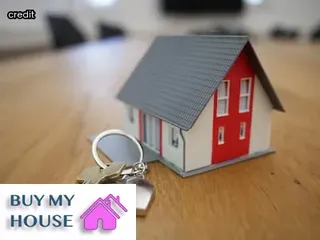A property lien is a legal claim put against a house or other real estate. This lien gives the lender the right to take ownership of the property if the borrower fails to pay back their loan.
It is usually placed on a property by creditors, tax authorities, or contractors who have not been paid for services or goods provided. A lien can remain on a property until the debt is paid in full and is recorded in public records.
The most common types of liens are those related to mortgages, unpaid taxes, and mechanic’s liens for unpaid home repair bills. In some cases, a lien may be placed on a home without the homeowner's knowledge.
Property owners should always check their local public records to ensure that they are aware of any outstanding liens against their property.

When it comes to dealing with a lien on your house, one of the most important steps is understanding what kind of lien has been placed on your property. Generally speaking, there are two main types of liens that can be placed on a house; voluntary and involuntary.
A voluntary lien is something that a homeowner agrees to, such as taking out a second mortgage or refinancing their existing loan. An involuntary lien is something that is imposed on the home from an external source, such as a tax lien or judgment lien.
It's essential to know the type of lien you have in order to effectively manage it and determine how best to proceed. For instance, if you owe taxes and the government has filed a tax lien against your home, then paying off that debt should clear the lien from your property.
On the other hand, if you have an involuntary judgment lien against your property then you may need to negotiate with the creditor who holds it in order to get it removed. Regardless of which type of house lien you have, being aware of the differences between them can help you make educated decisions when it comes time to resolving it.
When it comes to real estate liens, it is important to understand the rights of both creditors and debtors. A lien serves as a legal claim or security interest on a property, giving the creditor the right to take possession of the property until the debt is paid off.
In some states, creditors can also put a lien on personal property if there are unpaid debts associated with that property. It is essential for debtors to know how to deal with a lien on their house in order to protect their rights and not end up losing their home.
Creditors must comply with certain guidelines when placing a lien and cannot place one without obtaining a court order first. Debtors should carefully review their state laws regarding liens so they understand what options are available for responding to them.
In most cases, owners can negotiate with creditors or seek assistance from local agencies in order to come up with an agreement that allows them to keep their home while paying off the debt over time. It is also important for debtors to stay informed about any notices they receive regarding liens and be aware of any deadlines that must be met so they do not risk further penalties or losing their home altogether.

If you have a lien on your house, it is important to understand the legal implications of this situation. A lien gives a creditor the right to take possession of your property if you are unable to repay what you owe.
It is also important to know that any liens placed on your house become part of the public record and will affect your credit score. Depending on where you live, there may be different laws and regulations governing how liens work in regards to real estate.
To protect yourself, it is essential to research these laws and contact an attorney who specializes in debt collection if necessary. In some cases, the lien holder may be willing to compromise if they feel that they are unlikely to receive payment from you; however, they can also pursue court action which could result in foreclosure proceedings or other ramifications, so it's best not to ignore the situation.
Understanding how liens work and taking proactive steps can help you avoid further financial difficulties associated with having a lien placed on your house.
Homeownership is a big investment and any unpaid liens have the potential to put that investment in jeopardy. It’s important to know how to assess the impact of an unpaid lien on your home before taking action.
Unpaid liens can be a result of unpaid taxes, lawsuit judgments, or even contractor work you owe payment for. Knowing the type of lien is essential in determining what steps need to be taken next.
In some cases, such as tax liens, you may be able to enter into an installment agreement with the government agency to pay off the lien over time. In other cases, such as contractor disputes, you may need to settle the dispute with the individual or organization who filed the lien in order for it to be removed from your property title.
Knowing how each type of lien impacts homeownership is key when deciding how best to handle them. Researching your rights and responsibilities as a homeowner can help ensure that any decisions you make regarding an unpaid lien are well-informed ones.
Assessing all possible options for dealing with a lien on your house should always be done before making a final decision so that you can mitigate its impact on your homeownership as much as possible.

Putting a lien on someone's property is a powerful way to ensure you are paid for services or goods you provided. To do so, you must first determine the amount of debt owed to you, and then file a claim in the court where the debtor resides.
After the claim is filed, it will be recorded in public records. Once the lien is filed, creditors have the ability to seize any assets owned by the debtor until their debt is satisfied.
If necessary, courts can authorize forced sale of assets to repay debts. It is important for creditors to understand that not all liens are created equal; certain states have laws that apply only to certain types of liens and some lien holders may not be able to collect from certain assets even if they have a valid lien on them.
Additionally, creditors should always research local laws before filing a claim as many states impose various restrictions on how long these liens can remain active and what type of legal action they may take against debtors.
When it comes to dealing with a lien on your house, it is important to assess the priority of different types of liens. A lien is generally a claim against a property by someone who has loaned money or provided services that have not been compensated.
Liens may be placed on personal or real property in order to secure payment of the debt and remain until the debt is paid off. Generally speaking, liens can be classified as either voluntary or involuntary, and prioritized accordingly.
Voluntary liens are created when a borrower knowingly puts up his or her property as collateral for a loan. In contrast, involuntary liens are those that are imposed without the borrower’s consent; these include tax liens, mechanic’s liens, judgment liens, child support liens and foreclosure notices.
Each type of lien typically carries its own set of rules and procedures for how to deal with them; thus, it is important for homeowners to become aware of their rights in these matters before attempting to address any lien on their house. Additionally, understanding the priority level associated with each type of lien can help homeowners determine which steps must be taken first in order to resolve the issue.

If you are considering buying a house and want to investigate whether the previous owner has placed any liens on the property, there are several steps you can take. First, review the public records in your county clerk’s office or town hall.
These records can provide information about liens on the property from unpaid taxes, mortgages, or other debts. You should also consider ordering a title search from a real estate attorney to ensure that all liens and encumbrances have been identified.
Additionally, you may want to consult with a real estate professional who is knowledgeable about any local laws governing liens on properties and their transferability when sold. Finally, you may need to contact the previous owner directly if they still possess any documents regarding loans or other financial obligations related to their ownership of the home.
Knowing what potential liabilities you may be inheriting is essential before committing to purchase a home with an outstanding lien on it.
When dealing with a lien on your house, it is important to understand the difference between voluntary and involuntary liens. A voluntary lien is one that you request to be placed on your property in order to secure a loan or other debt.
An example of this would be when you take out a mortgage or auto loan. In contrast, an involuntary lien is placed without your consent, usually due to unpaid bills, taxes, or judgments against you.
These liens must be paid off in order for the house to be released from them. With voluntary liens, the borrower has more options for relief as they are not legally obligated to pay off the entire amount owed until all of their other debts have been paid off.
On the other hand, involuntary liens require immediate repayment of the full amount owed or else face foreclosure or repossession of the property by creditors. It is important to seek counsel from a qualified attorney before taking any action involving either type of lien in order to ensure that all legal requirements are met and that you are protected financially during and after any agreement made with creditors.

When it comes to dealing with a lien on your house, there are all kinds of myths floating around. However, it's important to understand the difference between truth and falsehood when it comes to mechanics' liens.
For starters, a lien is not necessarily the same thing as foreclosure and does not always lead to losing one's home. In fact, understanding what kind of lien you have on your house is key in determining how best to handle it.
It's also important to recognize that a lien can be released once the debt has been paid off or otherwise satisfied. Additionally, selling a house with a lien is possible in some cases and debtors may be able to receive some of the proceeds from the sale depending on state laws.
Finally, for those who want to stay in their home, refinancing or restructuring their mortgage may be an option if they have difficulty paying off the debt associated with the lien. Knowing how to deal with a mechanics' lien on your house starts with being informed about potential solutions and understanding which myths about them are false so you can make an educated decision about how best to move forward.
When dealing with a lien on your house, it is important to analyze the credit significance of the mortgage lien. Understanding the impact that a lien can have on your credit score is key in taking appropriate steps toward resolving the issue.
Depending on how long you have had the lien and whether or not payments are being made, you may need to take additional steps to protect your credit rating. If a lien has been removed, you should check your credit report to make sure it has been removed.
A foreclosure or judgement lien can stay on your report for up to seven years, while other types of liens may remain on your report for up to 10 years. It is essential to be aware of any outstanding liens so that you are able to effectively manage them and avoid further damage being done to your credit score.

Real estate liens are a common issue that many homeowners can face. It is important to understand local and state laws when dealing with a lien on your house, as they will vary greatly depending on the jurisdiction.
In some cases, you may be able to negotiate a payment plan or settlement with the creditor who placed the lien. Otherwise, it may be necessary to file a motion to have the lien removed in court proceedings.
Depending on the type of lien placed, you may need to settle tax debts or outstanding payments related to repairs or construction projects in order for it to be released. Knowing what options are available and understanding applicable laws pertaining to liens is essential for dealing with such issues properly.
It is also important to consult with an experienced attorney before taking any action so that you can make informed decisions that protect your rights as a homeowner.
When dealing with a lien on your house, it is important to identify potential sources of financial assistance during the dispute. Depending on the nature of the dispute and the circumstances surrounding it, there are a variety of options available.
Consulting with an attorney who specializes in such matters can be beneficial and provide you with information about potential resources. In some cases, homeowners may qualify for grants or loans from local, state, or federal government agencies that can help cover costs associated with a lien dispute.
Additionally, non-profit organizations may also offer financial assistance to families in need in these types of situations. When seeking help with a lien dispute, it is important to consider all the options available and research thoroughly to find out which one might be right for you.

When facing a lien on your house, it is important to understand the foreclosure process and all of the options available to you. Depending on the severity of the situation and how much money is owed, there are different paths that can be taken.
For example, if you are able to come up with the money needed to pay off the lien, this could be an ideal solution as it would enable you to avoid any further legal issues. On the other hand, if you are unable to make this payment or it would leave you in a difficult financial position, looking into other options such as refinancing or selling your home might be more beneficial.
Additionally, if you have already been served with a foreclosure notice, understanding what that means for your home is essential. In some cases there may be programs available through your state or municipality that can help keep you in your home or provide access to alternative financing.
It is also important to consider whether filing bankruptcy might be an option for dealing with the unpaid lien on your house. Ultimately, exploring all of these potential solutions will help ensure that you make an informed decision regarding how best to handle this situation.
No, a lien is not the same as a loan. A lien is placed on your home when you owe money to someone else and they have taken legal action to secure the debt.
Liens can be put in place by creditors, the IRS, or even contractors who have worked on your home. When you have a lien on your house, it limits what you can do with it—you can’t sell or refinance it until the lien has been paid off or released by the creditor.
Loans are typically obtained from a bank or other lender, and they must be paid back with interest. So while both liens and loans require that debt be repaid, there are important differences between them.
Understanding these distinctions can help you better manage any liens on your property and make informed decisions about how to deal with them.

A lien is a legal claim against a property by an individual or organization that has been owed money. Liens can be placed on real estate, vehicles, and other personal property, such as jewelry or artwork.
When a lien is placed on a property, it stays in place until the debt is paid in full. Liens can be used to secure payment of taxes, child support payments, court judgments, or other debts.
If the debt is not paid off within a certain time period, the creditor may take ownership of the house or other property and sell it to recoup their money. It's important to understand how liens work so you know what steps you need to take if one is placed on your home.